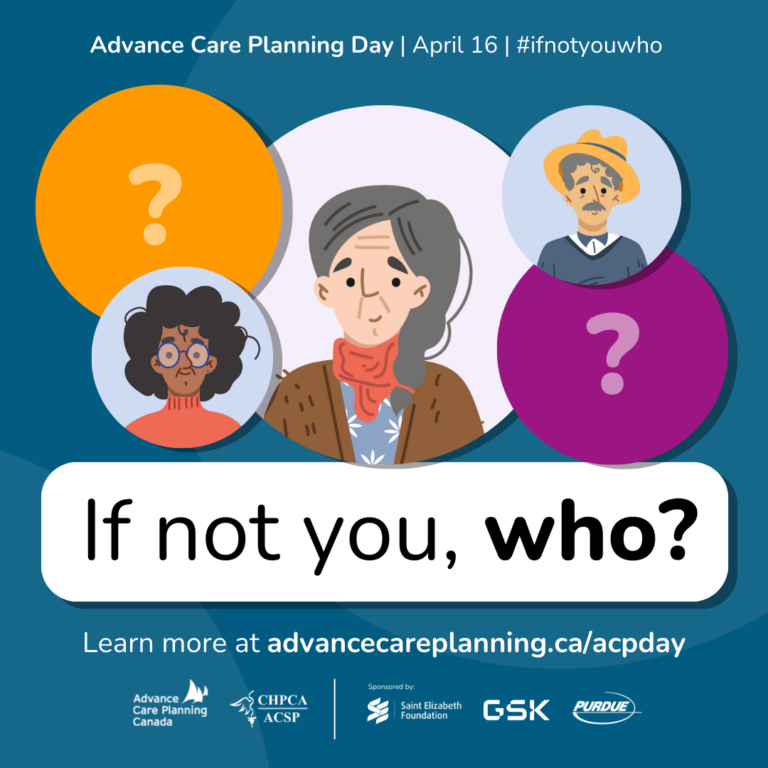If Not You, Who?
Who would you trust to make your healthcare decisions?
Planning for your future healthcare needs is important. So, we’re asking: Do you know what would happen if you couldn’t decide for yourself? Who would you trust to make those healthcare decisions for you?
You have the power to choose who that person is. They can be a family member, a friend, or anyone in your life that you trust to make the kinds of healthcare decisions you would want.
Think about who you would trust with making those important decisions for you.
Think about what matters most in your life and how that might help guide someone in making the kinds of healthcare decisions you would want.
The best time to think about this is now when you can make decisions for yourself. We have useful guides to help you along the way.
April 16th is Advance Care Planning Day. So, ask yourself: If not you, who? Do you know what would happen if you couldn’t decide for yourself? Who would you trust to make those healthcare decisions for you?
Advance Care Planning in Action

Olívio is a 39-year-old man with spina bifida, a congenital disorder. Despite facing physical and health challenges, he has surrounded himself with a network of family, friends and disability community allies who understand the importance of his autonomy and self-determination.
While Olívio considered appointing his Portuguese-speaking parents as his Substitute Decision Makers (SDMs), he was concerned they could encounter a language barrier which would delay decision making in an emergency. For this reason, Olívio designated his close friend Jean as his SDM.
Having met through a spina bifida support group, Olívio and Jean bonded over their similar lived experiences with discrimination and systemic barriers. Comfortable talking openly about their values, wishes, and beliefs, there is a deep understanding between the friends. Olívio is confident Jean will advocate for his healthcare preferences with compassion and a thoughtful understanding of his needs.
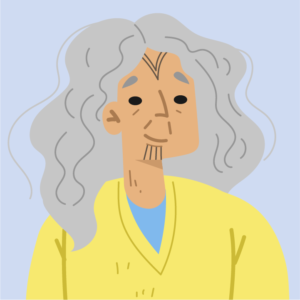
Salome is a 79-year old Inuk woman, who lives in a rural, isolated community in Northern Canada. She has suffered from multiple chronic health issues over the years, and has most recently been diagnosed with congestive heart failure.
Salome’s husband had previously been designated to make health care decisions on her behalf if she was no longer able to, but he has recently died. Thankfully she has a large family for support, including 11 children, who are all actively involved in her care. Knowing she has some major health concerns, and to avoid any conflict between her children should her health deteriorate, Salome appoints her eldest daughter, Sophie, as her substitute decision maker. Salome is confident that Sophie will honour her health care wishes, ensuring that the cultural aspects of care provision are at the forefront.
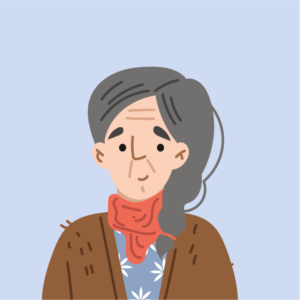
Helen is 83 years young and has lived her whole life in the same small town. It’s where she feels at home, even after her children and her brother moved away. She keeps in touch with them and their families online through video calls. Helen lives alone in her apartment and sees a few friends every week for tea and bowling.
Even though she is healthy now, Helen knows that as she gets older, she could face health issues. She also knows that sometimes important health care decisions need to be made quickly, especially since she lives in a rural area.
So, who would make health care decisions for Helen if she couldn’t speak for herself? Her three children all live in other provinces and her brother lives an hour away. Helen feels that her children don’t live close enough to help. While her brother is closer, he sees the world very differently from Helen, and she doesn’t know if he would make decisions that she would want for herself.
That’s why Helen decided she wants her friend Susan to make health care decisions for her if she couldn’t make them for herself. They have known each other for many decades. Susan knows that Helen wants to stay in her community above all else because that’s where she feels safe and most at home. Helen trusts Susan to respect her wishes, and to keep her family updated on her health.
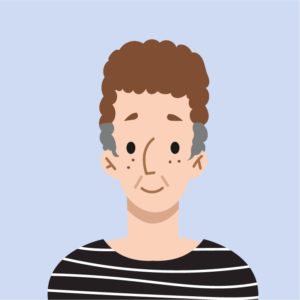
Michael is in his late 50s and lives with multiple chronic illnesses. He is an outgoing and vibrant trans man with a group of friends and chosen family that supports him. He has lived authentically as a man for many decades. Though he is estranged from his biological family, Michael built his own family and community that loves and supports each other.
Living an authentic life on his terms and having control over his care are very important to Michael. That is why he chose his friend Dee to make health care decisions for him if he couldn’t make them himself.
Michael considers Dee to be a part of his family. They helped him with care needs in the past and are familiar with his medical history. They also share similar values. Dee and Michael have both discussed how they define “a good life” for themselves. After those conversations, Michael knows that he can trust Dee to advocate for him to receive the care that he would want if he couldn’t speak for himself.
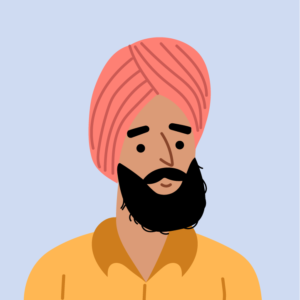
Ajit came to Canada from India 2 years ago. He enjoys his work at a retirement home and is improving his English through evening classes.
Ajit met his friend Moraa, another newcomer, at an English class. She introduced him to new friends who volunteer and study English together. Moraa’s support has helped Ajit to build his new life.
Ajit’s cousin Dalip came to Canada 7 years ago. He is Ajit’s only close relative here. They lead very different lives, but both value their shared ties to family, faith, and culture.
Through his work, Ajit sees how important it is to plan for your future health and personal care needs. Planning ahead helps your family and health care team make choices that align with your wishes and take better care of you. So, he asked himself who he would trust to make health care decisions for him if he couldn’t make them himself.
While Moraa is an important part of his life in Canada, Ajit would want the person making health care decisions for him to be connected to his family, faith, and culture. That’s why he wants and trusts Dalip to make health care decisions for him if he couldn’t speak for himself.
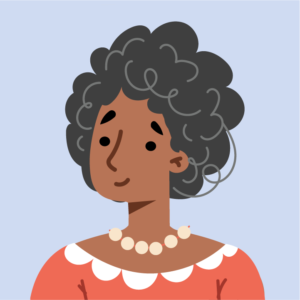
Monique has owned her own business for over 25 years. She is active in her local Black business leaders’ group and mentors other Black entrepreneurs. Monique lost her husband 4 years ago to heart disease. Together, they raised their now adult children Samuel and Emma.
With her siblings, Monique provided care for her parents at home as they reached the end of their lives. Family coming together to care for aging relatives is very important in her culture. A value she is also passing on to her children.
Monique trusts her children to make health care decisions together for her if she can’t speak for herself. She values the warmth and kindness that her son inherited from his father. Monique also loves the pragmatic optimism that she shares with her daughter. She feels that Samuel and Emma would be best equipped to make care decisions for her as a team.
That’s why Monique knows it is very important to discuss her wishes for her future health care with both her children. She doesn’t want decisions about her care to be a source of conflict between them. Monique wants Samuel and Emma to have a shared sense of what matters most in her life, and what that means for her future health care.
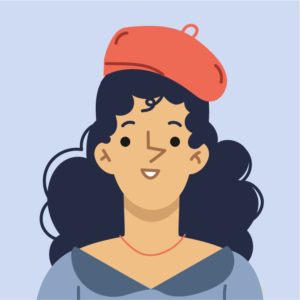
Layla is the incredible mom of two young kids, Ava and Jonas.
Raising her kids alone hasn’t been easy, especially since Layla’s family lives across the country. Thankfully, she can count on neighbours and friends for support.
Layla has plans about who would care for Ava and Jonas if something were to happen to her. But, who would make health care decisions for Layla if she couldn’t speak for herself?
Layla wouldn’t want her mom or her brother making important decisions for her care from so far away.
Luckily, her friend Nicole lives nearby. Nicole knows that Layla values being a part of Ava and Jonas’ lives, and that she would do anything to be there for her kids. Layla trusts that Nicole would make choices for Layla’s care that she would want if she couldn’t speak for herself.
Have more questions? Check out this page or contact us anytime at [email protected]!
ACP Day 2024 Campaign Materials
Here’s some tools and resources to help our provincial partners and organizations plan for ACP Day.
ACP Day Events Across Canada
Reflection Prompts
ACP Day: If Not You, Who? Campaign Kit
Get Involved

Be Part of the ACP Day 2024 Photo Mosaic
We’re planning something special for ACP Day 2024 and we need your help! As part of this year’s reprise of our “If not you, who?” theme, we’re creating a photo mosaic of people in Canada who have selected someone to make decisions for them if they can’t make decisions for themselves.
To be a part of this special project, send a photo of either yourself, your “who”, or the two of you together to [email protected] by April 26, 2024.
The photo mosaic will be unveiled shortly after. Everyone who sends a photo will be sent a digital version, and be entered into a draw for a full colour, framed, art piece.
Add a “If not you, Who? ACP in Action” Story
We would like to build a diverse collection of stories including the experiences of Indigenous communities, persons with disabilities, and more to add to our “ACP in Action Stories” for ACP Day 2024. If you have a story you would like to share as part of ACP Day 2024, please email [email protected] Please also let us know if there are other unrepresented audiences you would like us to include.

